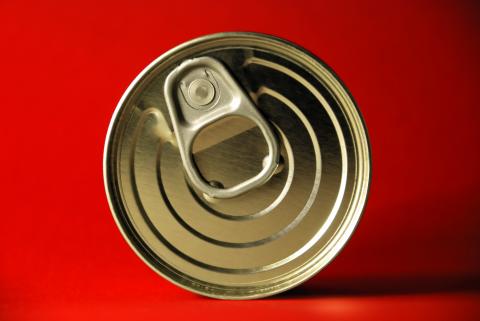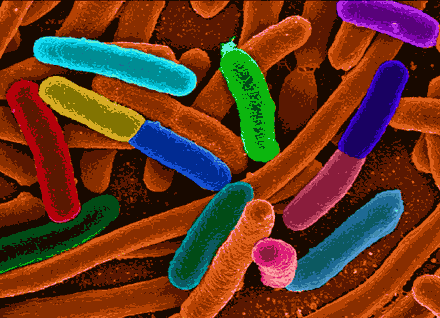
312-981-0409
33 N Dearborn St 10th Floor, Chicago, IL 60602
Serving Clients Across 7 Illinois Locations
Recent Blog Posts
Do Not Wash Your Turkey This Thanksgiving

At first glance, you might think you misread the title of this blog post. For most of us, washing food is the natural next step before seasoning and cooking it. Conventional wisdom says that this is the way to remove harmful bacteria that can cause food poisoning. With most foods, this is correct. But with raw poultry, washing simply splashes juices from the bird and bacteria around the sink and countertop, creating an atmosphere in which they can be spread to other foods and onto guests' hands.
So, what should you do with the turkey? Cook it to a safe internal temperature of at least 165 degrees Fahrenheit. This will kill any harmful bacteria in the turkey. To determine whether your turkey has reached a safe internal temperature, stick a meat thermometer into the thickest part of the breast. Another way you can make your turkey safer this Thanksgiving is to avoid stuffing it before putting it into the oven. When stuffing is cooked inside a turkey, it absorbs the meat's juice. Rarely, the stuffing reaches a safe internal temperature, which means that it can harbor dangerous bacteria even if the meat does not. To enjoy safe stuffing this year, cook the stuffing separately and add it to the turkey while it rests after being cooked.
Stay Safe from Food Poisoning this Fall

Every season has its traditional foods. In the winter, many people opt for carb-heavy, stick-to-your-ribs meals like baked pastas and stews. In the spring, picnic foods often become popular, followed by barbecue and frozen treats in the summer. Autumn is no different. For many Americans, the fall is the season of apples and apple products, Halloween candy, and an elaborate Thanksgiving dinner.
When you plan your fall celebrations this year, keep food safety in mind. Although you cannot control how food purchased from restaurants and food served at celebrations hosted by others was handled and prepared, you can take steps to reduce the chance of anybody contracting food poisoning from entrees and snacks that leave your kitchen.
Even Packaged Candy Can Be Dangerous
If you are a parent, you probably know to check your children's Halloween candy thoroughly after they bring it in from a night of trick-or-treating. Although this is often suggested as a way to eliminate candy that has been tampered with, it is also a way to get rid of any candy that appears to be spoiled or contaminated with foreign material. Candy with torn or damaged wrappers should be tossed in the trash, as should homemade goods like brownies or cookies. Although it can be a nice gesture to make homemade treats for trick-or-treaters, there is no way for a parent to know how the ingredients and treats were handled and stored in their maker's kitchen.
New Food Poisoning Hotline in Iowa Aims to Reduce Outbreaks

In Iowa, food poisoning victims have a new resource to turn toward for help: IowaSic, the new statewide food poisoning hotline. This hotline is a joint initiative between the Iowa Department of Public Health and the Iowa Department of Inspections and Appeals. The hotline is intended to help these agencies identify potential food poisoning outbreaks in the state before they occur.
This hotline was developed after 127 people in Iowa, Nebraska, and the surrounding states fell ill during the 2013 Cyclospora outbreak. According to Dr. Patricia Quinlisk of the Iowa Department of Public Health, Iowa was the first state to identify the cause of that outbreak, which allowed the Centers for Disease Control and Prevention and the United States Food and Drug Administration to take action to contain it. If IowaSic had existed in 2013, the outbreak could potentially have been contained sooner. If IowaSic proves to be a successful way of managing and preventing food poisoning outbreaks, other states could follow suit in the future by developing their own hotlines. Currently, Chicago food poisoning victims can make reports to Foodborne Chicago, a website that provides resources to victims. Nationwide, victims can make reports to foodsafety.gov.
New Study Shows Crohn's Disease Could be Linked to Food Poisoning

Recent research from McMaster University found that individuals who have suffered from food poisoning may be at a greater risk of developing Crohn's Disease than individuals who have not suffered from food poisoning. The findings were published in the journal PLOS Pathogens.
The research indicates that a heightened risk of developing Crohn's Disease could be a long-term complication of food poisoning, but this is not the only long-term complication food poisoning victims can face. Organ damage is another complication that a food poisoning victim can suffer. If you suffer from complications that result in substantial financial damages as a result of preventable food poisoning, you could be entitled to receive monetary compensation for your damages through a personal injury claim. Work with a personal injury lawyer who has specific experience pursuing food poisoning claims to seek the compensation you need for your medical bills and other damages if you are in this situation.
What Can Contaminate my Food and Make me Sick?

Sometimes, food poisoning occurs as the result of a foreign particle in the victim's food, rather than due to the presence of harmful bacteria like Salmonella or Listeria. In certain cases, the cause of illness is the bacteria that enters the food through these foreign particles and in other cases, the victim suffers a unique type of illness or injury due to the specific contaminant. In any case of food poisoning or a contaminant-related injury, medical attention should be sought in a timely manner if the victim's symptoms do not resolve on their own within a few days or if the victim is pregnant, a young child, elderly, or otherwise has a weakened immune system.
Chemical Contamination
It is important to note that many foods naturally contain chemicals. In fact, chemicals are all around us, both man-made and naturally occurring. But certain chemicals should not be in certain foods and when they are present in foods, they can pose a threat of illness. Examples of these chemicals include residues of veterinary medicines, pesticides, chemicals present in food packaging, and industrial chemicals from the plants where the foods are processed and packaged.
What are the Most Common Causes of Food Poisoning?

When you read about food poisoning in the news, you probably see a lot of the same causes listed again and again: Meat, leafy vegetables, and dairy products are often the foods mentioned as harboring harmful Listeria, Salmonella, and E.Coli bacteria. These are some of the most common types of food poisoning to occur in the United States and the foods known for causing them.
In 2015, the Centers for Disease Control and Prevention (CDC) published a report detailing the most common types of food poisoning in the United States and their causes. Below are a few highlights from the report. These four types of bacteria accounted for 75% of the reported food poisoning cases in the United States. Although these are the most common types of food poisoning reported, remember that there are many other types of food poisoning that exist. Familiarize yourself with their symptoms as well to determine if you need to seek medical attention after consuming a contaminated food product.
Eggo Waffles Recalled After Listeria Scare

Food poisoning can occur with fresh items, like meat and vegetables straight from the farm, or with packaged items that can be purchased frozen or vacuum-sealed. Many individuals do not realize that processed and packaged foods can be as dangerous as fresh foods because the processes the foods go through before reaching store shelves should ideally kill any harmful bacteria. A recent report of listeria being found in packages of Eggo Nutri-Grain Whole Wheat waffles has changed many individuals' perception of the safety of packaged foods.
Only the Nutri-Grain Whole Wheat variety of waffles was recalled. Other varieties and other products from Kellogg Company are safe to eat, the company reports. Kellogg Company voluntarily recalled packages of potentially-affected waffles in September 2016.
Strong>Effects of Listeria
Listeria can cause the following symptoms:
Antibiotic-Resistant E.Coli Strain Found in Connecticut Toddler

Bacteria are living organisms. It can sometimes be difficult to think of them this way because they are microscopic, but they are organisms just like birds, fish, and human beings. Bacteria are unicellular, which means that each individual is only made up of one cell, rather than the trillions of cells that comprise a human being.
As living organisms, bacterial populations can grow and evolve according to their environment. One gene that has been found in strains of E.Coli bacteria is mcr-1, which makes them resistant to certain antibiotics. Thus far, four cases of individuals falling ill to this strain of E.Coli have been identified in the United States, including a toddler in Connecticut who became ill in June 2016. E.Coli is especially dangerous to humans because it can be spread quickly through contaminated food. Young children can suffer significantly worse symptoms of food poisoning than adults because their immune systems are not yet fully developed, making antibiotic-resistant strains potentially deadly to young victims.
Hepatitis A Outbreak Linked to Frozen Strawberries in Smoothies

Although certain types of food are linked with food poisoning outbreaks more frequently than others, nearly any type of food or consumable product can carry harmful bacteria that can cause victims to fall ill. One recent report from Food Safety News cites frozen strawberries as the culprit for the recent outbreak of Hepatitis A. As of September 8th, 2016, 89 people in seven states have suffered from symptoms of Hepatitis A after consuming smoothies made with frozen strawberries imported from Egypt. Reports came from West Virginia, New York, North Carolina, Oregon, Wisconsin, Maryland, and Virginia.
In most of these cases, the victim consumed a smoothie made by a restaurant or retailer, rather than purchasing the strawberries and making the smoothie at home. Multiple chains, including Tropical Smoothie Cafe, were cited as the sources of the contaminated smoothies.
Four Uncommon Types of Food Poisoning

When you read about food poisoning outbreaks in the news or see them on television, you probably hear the same names over and over: Salmonella, Listeria, Norovirus, and E.Coli. These types of harmful bacteria can spread quickly, causing a large number of people to become ill. Although they are four common types of food poisoning, they are not the only types of food poisoning. Other types of food poisoning that you might not have heard of include Botulism, C. Perfringens, Hepatitis A, and Vibrio Vulnificus.
Botulism
Botulism is often associated with canned foods. This is because the bacteria that causes Botulism thrives in environments with little oxygen. Botulism can have serious side effects, such as paralysis. It can also be fatal. If you experience symptoms of Botulism, such as nausea, a drooping eyelid, facial weakness, difficulty swallowing or speaking, or blurred vision within a period of 36 hours after consuming a canned food or fermented seafood, seek medical attention right away.
-

Foreclosure and Bankruptcy
Visit Website -

Real Estate and Estate Planning
Visit Website -

Personal Injury
Visit Website

 Spanish
Spanish Cantonese
Cantonese















